Recycling Is A Success Story
Recycling, composting and other sustainable waste management strategies are crucial to keep our cities clean.
- In 2017, the U.S. recycling and reuse industry accounted for
- 470,000 stable jobs
- $30.6 billion in wages.
- $117 billion in economic activity and
- $8.2 billion in state, local and federal tax revenues.
- Recycling and composting rates grew from 6.4 percent in 1960 to over 34 percent in 2015.
- 53% of Americans have local, curbside recycling and another 20% can opt-in or sign-up for curbside service
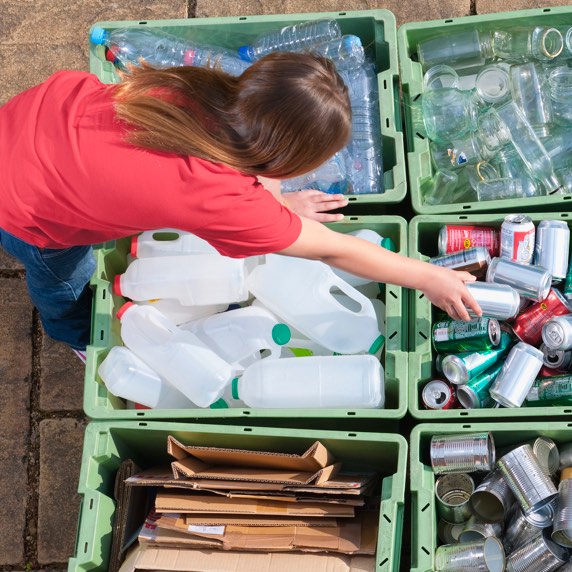
Challenges We Face
Americans create a lot of trash and recycling systems are not universal, creating inconsistencies in programs and streams, difficulty in maintaining clean streams, and the issue of "Who pays for this?"
- In 2014 the US paid $6.8 billion to dispose of 136 million tons of waste.
- 39 million tons of food waste was generated, and only 5.3% is being composted
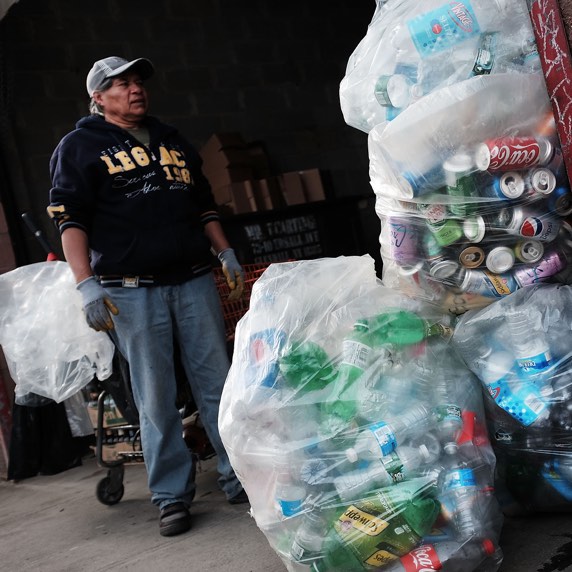
Spencer Platt/Getty Images
The Rise and Fall of Profitability
Commodity prices of recyclables are plunging, and China, the world’s largest buyer of recyclable goods, has announced a new policy restricting imports. The four commodities with the largest decrease in profitability make up a combined 59% of all US recycling.
Source: recyclingmarkets.net
The future of recycling is uncertain
As recycling has blossomed into a global industry, flaws in the system have also grown. Inconsistent recycling standards are confusing to citizens, single-stream recycling leads to high rates of contamination, and Americans continue to generate more and more waste. If we alter the way we think about waste from a burden to a resource, we will reshape our solid waste management industry into a sustainable materials management strategy. Recycling can work if we do, too.
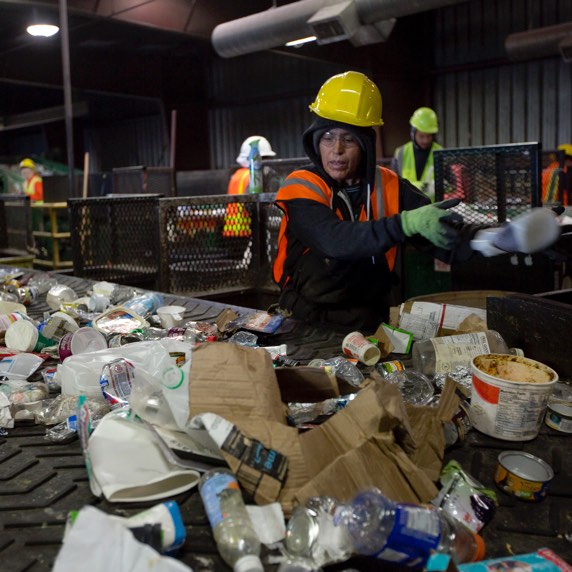
Natalie Behring/Getty Images
What Can We Do To Fix This Now?
We can create a circular economy, educate consumers, research our current waste, purchase sustainable products, prioritize new infrastructure options and improve our current technology.
Read more about circular economy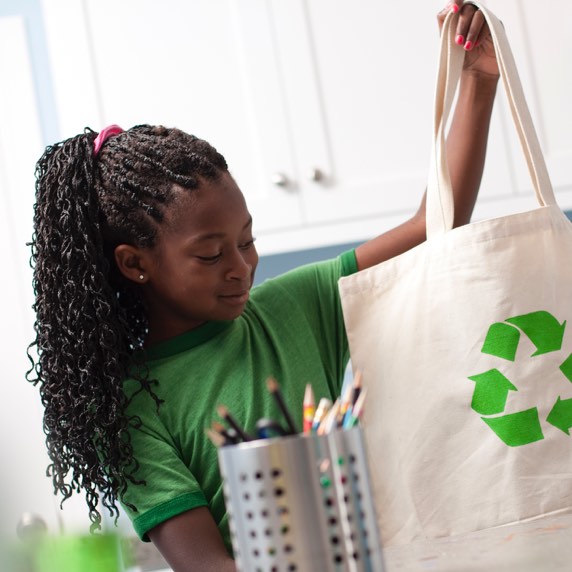
Rethinking Current Strategies
The health of our citizens and the safety of our environment depend on sustainable waste management systems. We need to reimagine funding opportunities for recycling programs, pilot programs that are innovative and create new partnerships with public sector and private sectors working in tandem.
Download a PDF Version of our recommendations here.
Read more about recommendations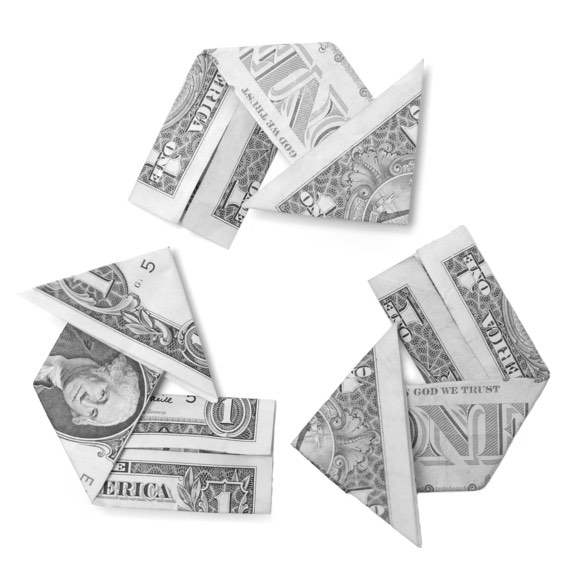
The Way Forward
It may seem overwhelming, but start now. Prioritizing and communicating new ways of thinking about the recycling – prevention first, then reduction, reuse, repurpose, recycle/compost, incinerate/waste-to-energy, and then landfill as a last resort – helps to create a holistic systems overhaul. Many cities are piloting innovative programs right now that can serve as templates for your own strategy.